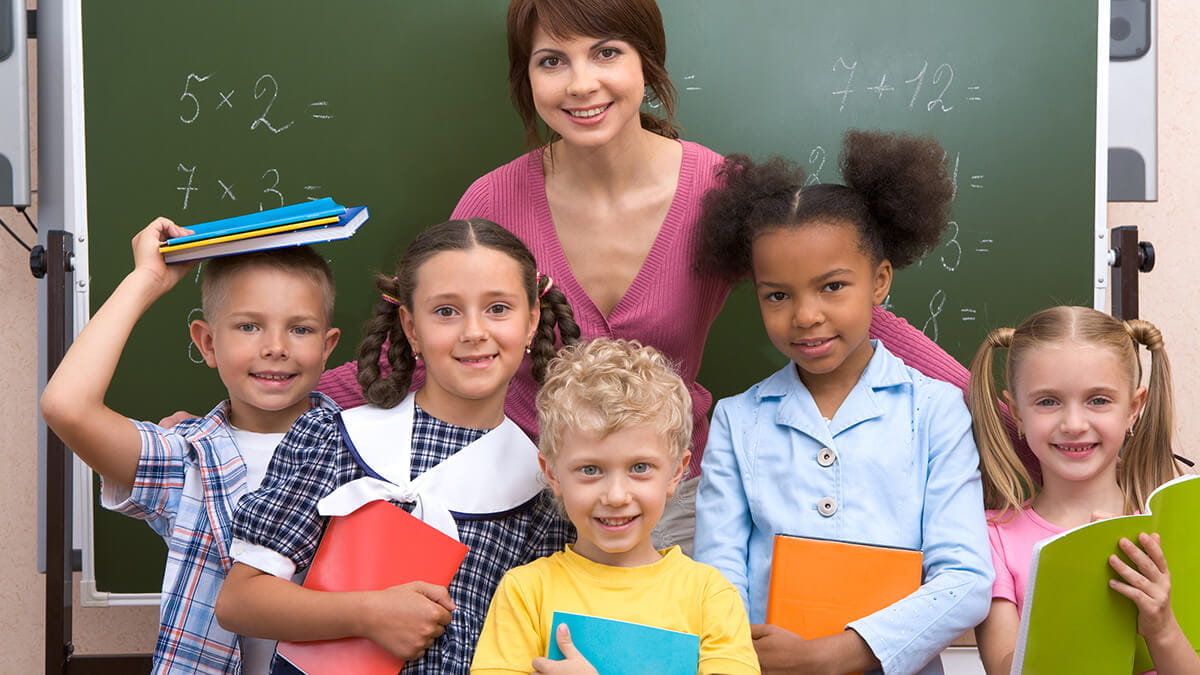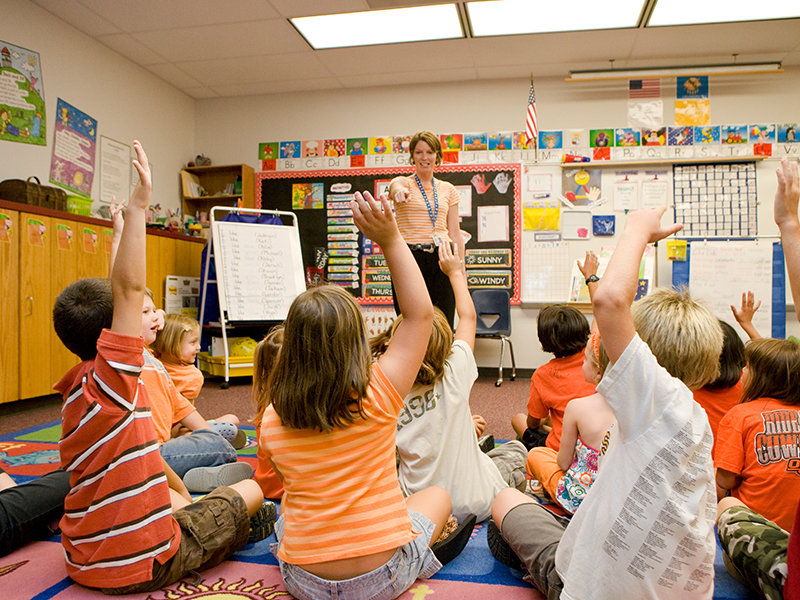Ways Kindergarten builds emotional resilience in young learners
Wiki Article
Discovering the Advantages of Kindergarten Programs: A Comprehensive Guide to Early Education And Learning
Kindergarten programs play an essential function fit a child's very early instructional experience. They offer an organized setting where young students can develop essential social abilities, emotional resilience, and cognitive abilities. These fundamental skills are necessary as kids move into more official education. Recognizing how these programs add to a child's development reveals much about their long-lasting educational trajectory. What specific advantages do these very early experiences supply, and exactly how do they affect a child's future?The Importance of Social Abilities Advancement
While lots of aspects of very early education and learning concentrate on scholastic abilities, the development of social skills in kindergarten programs is just as vital. Social skills encompass the ability to communicate properly, collaborate with peers, and browse social circumstances, every one of which are important for a child's general development. In kindergarten, kids learn to share, take turns, and deal with conflicts, cultivating a feeling of neighborhood and belonging. These experiences allow young students to develop relationships and develop compassion, preparing for positive relationships in the future.Teachers play an essential role in assisting in social skill growth with structured activities and assisted communications. Via group projects and play, youngsters exercise necessary skills such as paying attention, bargaining, and recognizing diverse perspectives. These communications aid kids build confidence and self-esteem, crucial components for their scholastic and personal trips. In general, supporting social skills in kindergarten improves youngsters's experiences and prepares them for the complexities of social life beyond school.

Structure Psychological Strength in Young Learners
Structure emotional resilience in young learners is basic to their general wellness and success in numerous aspects of life. Preschool programs provide an organized atmosphere where youngsters can learn to navigate their emotions successfully. With assisted tasks and communications, educators help children recognize and express their feelings, fostering a sense of self-awareness.These programs typically include approaches for dealing with obstacles, such as analytical tasks and role-playing scenarios that prepare children for real-life scenarios. By urging collaboration and empathy, young learners develop solid social links, which are vital for emotional assistance.
Educators play a pivotal function in modeling strength by showing exactly how to handle stress and anxiety and adversity. As youngsters observe these habits, they internalize important coping systems, furnishing them to deal with future emotional troubles with higher ease. In general, nurturing psychological resilience in very early education and learning lays a solid structure for long-lasting mental health and flexibility.
Enhancing Cognitive Abilities Through Structured Learning
As youngsters engage in organized knowing experiences within preschool programs, their cognitive capabilities are considerably improved. These programs introduce age-appropriate tasks that promote vital reasoning and problem-solving abilities. Hands-on tasks such as puzzles and building blocks advertise spatial awareness and rational thinking.Interactive narration and group discussions foster language advancement, increasing vocabulary and understanding. Through structured regimens, youngsters find out to comply with directions, improving their executive working skills, which are important for future academic success.
Social interactions within these programs additionally play a significant function, as youngsters find out to work together and connect efficiently, additional enhancing cognitive development.
Additionally, including play-based learning allows kids to check out concepts in an enjoyable and appealing method, strengthening their understanding and retention of understanding. On the whole, structured learning in kindergarten lays a strong structure for cognitive development, preparing children for the difficulties of higher education.
Fostering a Love for Lifelong Discovering

Furthermore, favorable communications with instructors and peers add to an environment where discovering is deemed satisfying and fulfilling. This helpful environment assists instill innate inspiration and reinforces the idea that education and learning is a continuous journey as opposed to a destination.
As youngsters uncover their toughness and interests, they are most likely to go after expertise beyond the class, laying the foundation for a lifelong commitment to discovering. Eventually, preschool programs play an essential role in shaping passionate learners that welcome instructional possibilities throughout their lives.
Planning For Future Academic Success
While fundamental skills are essential for early learners, preschool programs additionally play an important duty in preparing kids for future academic success. These programs introduce essential principles such as proficiency and numeracy, ensuring that web link children develop the cognitive capacities needed for even more advanced learning. By involving in organized tasks, pupils improve crucial thinking and analytic abilities, laying a strong groundwork for their educational trip.Furthermore, preschool promotes social-emotional development, making it possible for kids to navigate collective tasks and construct connections with peers. This collaborative setting instills a sense of belonging and boosts self-confidence, which is necessary for scholastic persistence.
In addition, exposure to diverse understanding experiences in kindergarten grows adaptability, furnishing kids to tackle different topics and challenges in succeeding qualities (Grade School). Ultimately, by offering a versatile early education and learning, preschool resource programs guarantee that youngsters are not only prepared for very first quality yet likewise planned for ongoing academic achievement throughout their academic occupations
Regularly Asked Questions
What Age Is Suitable for Starting Preschool Programs?
The suitable age for beginning kindergarten programs is typically between 5 and six years old. This age enables kids to create essential social, psychological, and cognitive abilities, preparing them for future scholastic success and personal development.Exactly how Do I Pick the Right Preschool Program for My Youngster?
To choose the ideal kindergarten program, one must consider elements such as curriculum, educator credentials, class dimension, location, and the institution's philosophy. Observing the atmosphere and celebration feedback from other parents can also be useful.Are There Any Kind Of State Demands for Kindergarten Enrollment?
Several states have specific demands for preschool registration, consisting of age limitations and paperwork such as birth certifications or evidence of residency (Grade School). Moms and dads must consult their neighborhood education and learning authority to recognize the exact requirements in their locationWhat Should Parents Anticipate During a Typical Preschool Day?
During a typical kindergarten day, moms and dads can her explanation expect organized tasks consisting of circle time, innovative play, standard scholastic lessons, treat breaks, and social interaction, all developed to cultivate knowing and development in a nurturing environment.Exactly How Can Parents Support Discovering at Home along with Kindergarten?
Moms and dads can sustain learning in your home by participating in routine reading, including academic video games, developing a consistent regimen, encouraging inquisitiveness through questions, and creating a positive, nurturing setting that cultivates expedition and creativity.Preschool programs play a critical role in shaping a youngster's early educational experience. Kindergarten programs supply an organized atmosphere where children can learn to browse their emotions successfully. As children involve in organized knowing experiences within preschool programs, their cognitive abilities are substantially improved. By interesting kids in varied activities-- such as storytelling, hands-on experiments, and collaborative jobs-- kindergarten programs cultivate curiosity and exploration. While fundamental abilities are essential for early learners, preschool programs additionally play an essential function in preparing children for future scholastic success.
Report this wiki page